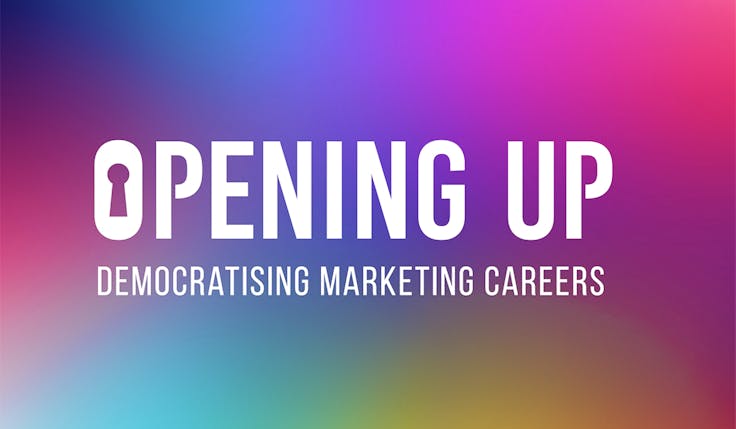‘It wasn’t enough to just create opportunity’: Inside the setup of The Finishing School Foundation
A sister project to The Brixton Finishing School, the new foundation looks to support underrepresented young people financially as they look to break into the industry.

Ally Owen has been running Brixton Finishing School, the organisation she founded to support people from underrepresented backgrounds access work in advertising and marketing, since 2017.
It’s grown a lot since then, partnering with brands and agencies like KFC, Diageo and VCCP to combat industry inequality by offering free educational programmes to untapped talent.
This month, Owen launched The Finishing School Foundation, a sister charity to Brixton to fund places on its programmes for individuals locked out of the industry.
“Brixton Finishing School has always been there to structurally change things, and it does that really successfully by working with the industry to drive that change,” says Owen. “But it became apparent, as the cost of living crisis and access to mental wellness, access to pretty much everything, has become more and more difficult, that it wasn’t enough to just create opportunity and deliver access.”
“You need to actually resolve some of the real, practical barriers to be able to make that access work for you.”
‘An economic problem’: Brands urged to treat social mobility as a business imperative
The foundation is aimed at helping ‘NEET’ talent, meaning those not in education, employment and training, study with Brixton Finishing School. It is thought that 807,000 of the UK’s 18-24-year-olds are NEET. This means 14.5% of this age group fall into this category, rising to 16% for 18-24-year-old men.
Ben Major is the global talent director at Uncommon Creative Studio, non-executive director at Brixton and now-trustee of The Finishing School Foundation. He explains that while Brixton Finishing School does an incredible job connecting opportunity with talent, sometimes even its summer course is a “privilege” because you’ve got to “quit a job to go do it”, he says, or sacrifice time when you could be in employment.
This is a systematic problem with access schemes more broadly, he explains. If an underrepresented talent gets access to a three-month placement, for example, it can be a risk, even if it’s paid, because of the end date attached.
NEET talent has the “biggest hurdle” to get into the industry, he says, “and so to make this equitable, you need a fund like this”.
‘It pays to be privileged’: Brands still failing talent from working class backgrounds
Many things often rear their head as threats to the industry. AI is the latest. However, for Major, “the biggest threat to our industry is the systematic neglect at educational level”.
Hand-in-hand with advertising and marketing’s let-down of underrepresented talent is the shortage of junior roles available to kickstart careers. “The biggest barrier to all of this is there’s no more jobs at junior level in brands and agencies,” explains Major. “It’s the hardest level to keep hiring for because the budgets are cut. You need more proficient senior people just to get to speed.”
Businesses aren’t focusing enough on the problems keeping NEET talent out of employment either. “If you’re too depressed to go to an interview or even sign up to a course, that’s a loss of potential. If you have nowhere safe to live, how are you going to focus on your first role?” says Owen.
The industry is “sleepwalking” into a big problem, adds Major, and the Finishing School Foundation wants to stop this.
Advertising and marketing have suffered “death by 1,000 cuts”, says Owen, who points out that the deep barriers to entry didn’t appear overnight.
“It’s not as if it suddenly became impossible to go to university, or impossible to live in London. This was so gradual and so chipped away, this has been a creeping disenfranchisement of huge swathes of talent,” she says.
The gradual decline of access and the rising cost of living has impacted how Brixton Finishing School operates. “We’re having to move from promoting structural change within our industry and introducing talent, to practically helping people eat, live, get access to health services,” says Owen.
“It’s Britain 2024 and we’ve had to set up a charity to practically help people. We’re one of the richest countries in the world, and I think that’s a really sad indictment of where we’ve ended up,” she adds.
She is optimistic, however, that the positive impact will be widespread. “I’m really hopeful that in the same way the industry’s embraced Brixton and other change-making organisations, they’ll see the value of a foundation like this.”
 Marketing Week’s Opening Up campaign is pushing for the democratisation of marketing careers. Read all the articles from the series so far here.
Marketing Week’s Opening Up campaign is pushing for the democratisation of marketing careers. Read all the articles from the series so far here.







